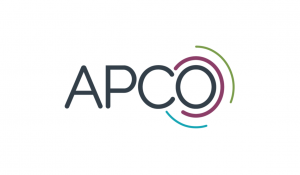Interview with Jayne Paramour, Sustainability Director at APCO (Part 1)
A few weeks ago, we had the chance to chat with Jayne Paramour, Sustainability Director at APCO. Our discussion has been divided into two parts. Below is part 1 of our conversation with Jayne – part 2 will be published next week.

Who are APCO, and what do they do?
In Australia, we (APCO) are convened under a piece of national regulation that is owned by the commonwealth that is called the National Environment Protection Measure for Used Packaging Materials.
Under that piece of regulation, any business that is putting packaging onto the market which has a turnover of more than 5 million dollars a year is obliged to report on their packaging use in the Australian market. That is a regulatory requirement that a lot of businesses don’t even know about and have not been complying with for many years.
We are starting to see more interest in the area, and more rigidity comes into it as well but the role of APCO in amongst all of that is – we are the administrators of what is effectively a voluntary product stewardship arrangement for packaging in Australia.
There is an agreement between business and government, which is known as the Australian Packaging Covenant. Anybody that becomes a covenant signatory, becomes a member of APCO and discharges their obligations against the environment protection measure through the APCO reporting system.
Ultimately we (APCO) started life as a compliance organisation to support businesses that wanted to meet their obligations and requirements. We have evolved in the last four or five years into a much broader organisation that is focused on circularity for packaging in Australia, and as a result of that, we have taken a role as a facilitator for the conversation about how to bring circularity to packaging in Australia.
Our signatories are predominantly brand owners who range from very small organisations with very small amounts of turnover, who are very conscious about doing the right thing – right up to your very large multinational companies such as Nestle and Unilever that are doing this not just in Australia but on a global level. The work they do here at APCO is very much reflective of the initiatives they take on a broader international landscape.
We also do a lot of research and knowledge building for both our members and the broader audience to help understand the space in Australia. This is something we’ve had to do a lot of work on since the China Sword Policy came in in 2018, and that’s been a major part of our work over the last few years. Firstly, trying to understand what was going on in the Australian marketplace and then build a bit of a strategy around how we were going to build a circular economy around these materials.
My next question is – what is your role at APCO?
Sure, so I kind of wear two hats – I am the Sustainability Manager in that I focus very much on what’s going on in this space globally, and I bring that knowledge back into APCO and I try and apply that to what we’re doing in the Australian Context. I keep a lens on progress and innovation that is happening elsewhere so that we can be prepared when it starts coming to our own marketplace.
I also wear another hat as Sustainability Partnerships Manager, so I do a lot of work with sectoral focussed projects, and I’ve been leading projects in the horticultural sector around packaging pots and tags and labels and trays and things like that. I lead another one with the dairy industry in partnership with the Industry Association Dairy Australia around sustainable packaging for dairy products. We are just about to launch a roadmap that is generating a whole bunch of new discussions around things that we are identifying as challenges and how we can start to address that.
I’m doing another one in the health care sector, so I’m looking at a lot of hospital waste and looking at things like the suitability of compostable packaging and food service for patient catering options and things where they’re capturing organic waste and they’re using a lot of single-use plastics. So yes, taking in the broad APCO advice that we give across the packaging landscape and looking at how that applies into more nuanced settings. And trying to work with industries and sectors to identify some of those more nuanced issues that they deal with and looking at how we can start to address some of the solutions to some of those challenges.
So yes, really taking what APCO already works on at that broader more generic level I guess, and targets it in on some of those particular specific challenges we see in some of these spaces.

What would be the primary objective/goal of APCO – in the short term and long term?
Short term it is about supporting the industry to meet the challenges that were laid down with the China Sword Policy which I think just shifted everything in terms of packaging.
We needed to step up and help businesses to understand how the policy was going to affect them in terms of their packaging and also start to engage more broadly across the packaging value chain. Not just looking at the input side of it, but looking at what happened at the end of it, where those materials could go, and what was ending up in landfill.
We feel like we have a very good picture of that, and we’ve set ourselves a very solid short term strategy to 2025 with things like the national packaging targets, with our packaging future, that’s kind of set that 3-5 year road map to what we need to do to get to 2025.
Beyond 2025, we are going to continue as a product stewardship organisation. We are hoping to achieve ACCC accreditation as a certified product stewardship scheme for packaging – so looking to that longer-term future of where we as an organisation sit in the packaging landscape – there is so much innovation going on at the moment in all sorts of areas and APCO has a very important role in bringing all those pieces together.
It’s about looking across that entire stakeholder network and understanding what the waste handlers’ challenges are versus what the brand owners versus the resin producers’ challenges are, and being able to continue to facilitate that conversation so we are actually achieving that circularity.
You know, every non-for-profit with an issue they’re trying to address hopes to make themselves redundant in the long term I think because you want the problem to be solved and to be no longer needed.
I think probably we have a role to continue just moving that dial further and further towards that circularity state that we are all aiming to achieve I think with all our resources.
What do you view as the biggest achievement for APCO so far?
I think the work that we’ve done over the last few years has successfully brought together the Australian packaging landscape. That is one of the biggest achievements that we’ve managed – to get all those voices around the table and really have a very clear and sound understanding of what’s going on in the Australian marketplace, and to be able to create not just advice and guidance around that but also work with all those different stakeholders to create a real strategy towards delivering our outcomes here.
It’s not just about APCO saying this is what needs to happen – it’s about having all those people together at the table who want to work on this issue, and who want to find solutions, and you know, that collaboration has really been a very powerful results producer over the last few years. Some of the strategic work that’s come out of that is now being physically turned into action before our eyes and we’re seeing it – the rubber’s hitting the road at the moment – the talk is kind of petering off and we know what we need to do and now people are actually taking the bull by the horns and doing it.
So I feel there is a lot of pride to be had in facilitating and orchestrating a lot of that conversation and work that went into producing that strategy and getting all those big stakeholders in. Government support for this has been a huge part of the process I think – we’ve managed to work closely (particularly with the commonwealth) on understanding the problem and for them to see what they needed, what their role was, what the other jurisdictions roles were in that bigger picture – and they’ve come to the party with us as well and they’ve been incredibly supportive of the work we’ve been trying to deliver. It’s been a real gathering and meeting of minds in many ways and utilising that trust that we’ve built across that stakeholder network to start to drive some solutions as an outcome.